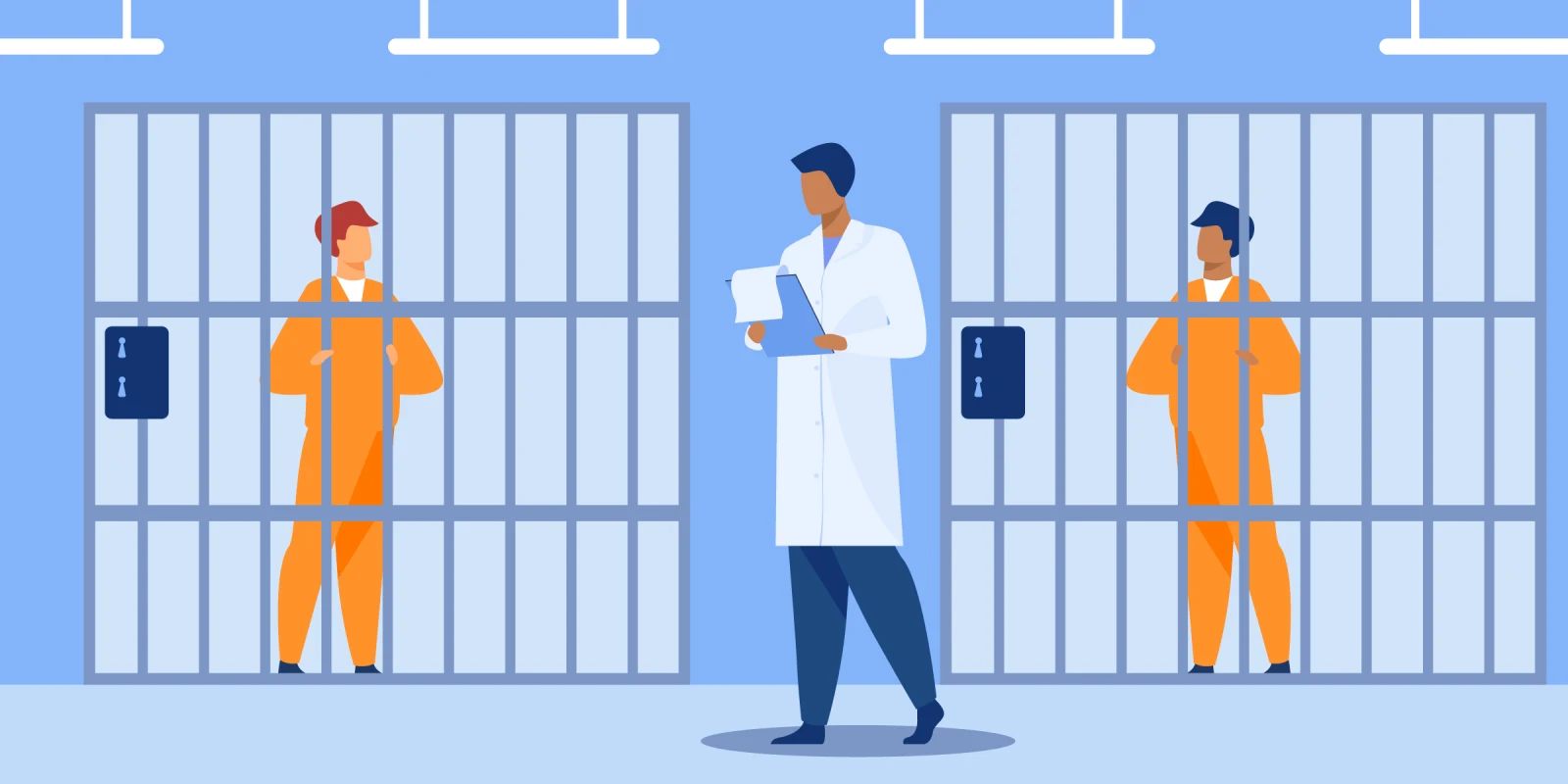To enter a health care facility, most clinicians simply scan or show their medical badge and receive access. When Dr. Jeffrey Keller needs to enter his place of work, he heads through seven locked doors with high security.
Dr. Keller is an emergency physician and the medical director of Badger Medical, a group that provides health care services to correctional facilities. In 2020, more than 2 million people were imprisoned in the U.S., the country with the highest incarceration rate in the world.
All prisoners are guaranteed free medical and dental care, yet it is increasingly difficult to recruit clinicians to work in correctional facilities. This is because the field of correctional medicine presents challenges. Dr. Keller explained that the primary issue is a lack of funding for patient treatments and staffing.
“There aren’t enough nurses, so the nurses that are there have to do twice as much work as they really should do,” Dr. Keller said.
Prison facilities are not designed for providing health services. According to Renee Dahring, a nurse practitioner who has worked in the prison system since 2001, the lack of medical technology in correctional environments has allowed her to develop stronger assessment skills.
“You don’t have an X-ray [machine] down the hall, you don’t have a lab down the hall,” Dahring said. “What we have to do is sit down and talk with the person to get a history and do a good exam.”
Another challenge these professionals face is the stigma and false beliefs toward the field of correctional medicine.
“You’ll hear inmates saying that, ‘You only work here because you can’t get a job anywhere else,’ or that they hire unlicensed people in corrections,” Dahring said. “I think sometimes even the public will believe that too.”
Dr. Keller also described how others react when they discover that he works in correctional medicine.
“I tell people what I’m doing in jail, and the response is, ‘Why do they get access?’” Dr. Keller said. “And that’s the wrong answer; they get it because they deserve it.”
Regardless of the stigma against correctional medicine and its lack of funding, clinicians in these facilities maintain that their meaningful experiences have significantly impacted their perspectives on medicine. Dr. Keller detailed several reasons he enjoys working in correctional care.
“The best part is that you get to practice medicine, and you get to see underserved people,” Dr. Keller said. “I’ve diagnosed cancer, rheumatoid arthritis, all sorts of things that were not diagnosed before they came to jail, because they didn’t have easy access to medical care.”
He added that most private practices must handle insurance coding and billing for treatments, but correctional health care workers do not need to. Dr. Keller listed good working hours as another benefit.
To Dahring, the health care communities in these facilities are more robust than other medical environments.
“We consult frequently with each other,” Dahring said. “I can talk to the psychiatrist who’s in the next room, and we don’t have as much of a time constraint. “
As an NP, Dahring has the opportunity to treat a wide scope of illnesses and disorders and provide care to people that truly need it.
“It’s very gratifying to solve problems, and that’s one of the things I like about it; you have time to get a little creative,” Dahring said. “There are people that have come in so sick they probably would have died, and we recognize that to start getting them some help.”
Dr. Brent Gibson, the managing director of the National Commission on Correctional Health Care (NCCHC), believes that correctional medicine is a great opportunity to improve the well-being of a population that is often left out of the health care world.
“As a physician it’s very appealing to me, because on the one hand, it’s very stressful to be asked to do things that push your training and capabilities, but the other option of doing nothing is even worse,” Dr. Gibson said.
Through his role at NCCHC, Dr. Gibson aims to improve the health care quality of various correctional facilities. He said he wishes that more clinicians would consider working in correctional care, but many do not want anything to do with a jail or prison.
“There is a need to practice high-quality medicine there, and we should attract the best and brightest,” Dr. Gibson said. “These institutions are full of human beings that need health care.”
What do you think about more professionals working in correctional medicine? Share your thoughts in the comments below.







